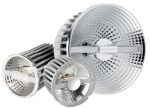
When it comes to maintaining the performance and longevity of a traditional boiler, chemical water treatment has an essential role to play. Dr Neil Watson, Global Technical Director at Fernox, explains why a heating system and its boiler could experience real problems without proper treatment and protection.
Building services engineers often have a huge remit in respect of the sites that they oversee. However, all buildings should undergo regular maintenance of boiler and heating systems to ensure they are working effectively, in terms of maximising energy efficiency and reducing unnecessary carbon emissions.
When it comes to making improvements, many building services engineers may think that replacing the boiler itself is the best course of action. Although the boiler and heating system is made up of various physical parts that at times, may indeed need replacing, it’s what is going on unseen within the system that can be causing problems.
Regular maintenance
Traditional heating systems are all subject to the effects of sludge and limescale build-up. This happens when the system has not been properly chemically treated at the point the system was installed and then regularly maintained and topped up. This can lead to blocked radiators and a boiler that is working harder to heat them to warm the various rooms to the set temperatures. This not only results in excessive fuel usage and unnecessary carbon emissions, it can also have a detrimental effect on the life of the boiler itself.
Building service engineers, who are responsible for older commercial buildings, may wish to begin by having a heating system powerflushed. This really is the first step when it comes to making improvements to an existing system, as a powerflushing unit is used to flush the system with water at very high temperatures to remove any system debris and sludge.
Chemical water treatments should be used to maximise the benefits of powerflushing. Make sure your contractor is using a high quality cleaner such as Fernox Cleaner F5, specifically developed for heavily contaminated or sludged systems or Fernox DS40 System Cleaner, a free-flowing powder, which is especially effective when limescale formation is a particular problem, both can be used via the powerflushing unit.
Protect the system
However, if you are confident that the system has already been powerflushed, properly cleaned and maintained and the system is still suffering from problems or a lack of efficiency, then replacing the boiler may be the only option. If this is the case, protecting this high cost investment for the organisation should be a top priority.
It’s at this point, when a boiler is being pre-commissioned that building services engineers need to ensure that the contractor on site treats the boiler and system as stipulated in Part L of the Building Regulations.
Once again, this is where chemical water treatment can really help. Without it, a 2% efficiency loss can be caused by limescale deposition from the initial fill water and make up water. Contractors need to use a reliable and Buildcert certified cleaner and inhibitor. For example HVAC Cleaner F3 and HVAC Protector F1 from Fernox have been designed for use within commercial heating and cooling systems and offer a complete long term solution against corrosion and limescale build-up.
Fernox HVAC Cleaner F3 is a multi-purpose cleaner for pre-commissioning new commercial installations and removing sludge from existing systems to restore efficiency. To clean effectively, it is advisable to leave the treatment in the system for up to seven days, until an acceptable flow around the system has been achieved.
The system should then be dosed with Fernox HVAC Protector F1, which provides continued protection against internal corrosion and limescale formation. Using a cleaner and inhibitor specifically designed for commercial systems in partnership can extend system life and help maintain efficiencies.
Preventative measures
Furthermore, boiler manufacturers have acknowledged the need to protect boilers by taking a firm position on chemical water treatment. Warranty repairs can be affected if a failure or a problem with a boiler has been caused or exacerbated by sludge and scale in the system. Should a problem occur with the boiler and you cannot prove that the correct preventative measures have been taken – your organisation could face costly repairs.
This is why it is vital that your contractor team in charge of boiler and system maintenance complete the warranty label that is provided with inhibitors to confirm that the correct procedure has been followed.
When it comes to the installation and maintenance of a building’s boiler and central heating system – the appropriate chemicals have to be used and the correct procedures adhered to. Building services engineers will always have a wide remit but an efficient and well protected boiler and heating system has to be top priority for any commercial organisation.
